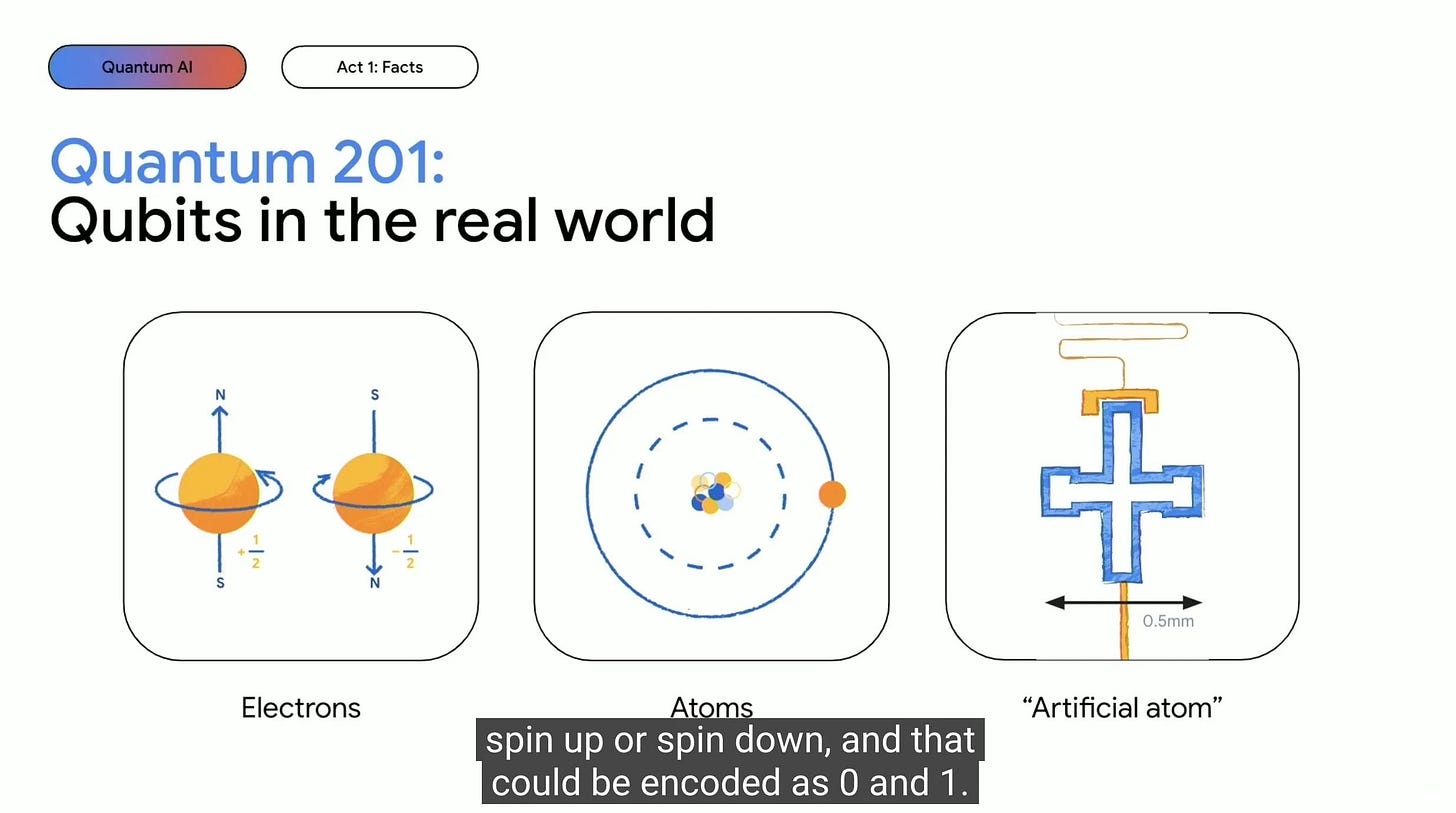Quantum Computing: Facts, Fiction, and the Future
In a recent presentation hosted by Google Quantum AI, Charina Chou, and Erik Lucero explored the realm of quantum computing, discussing its fundamental principles, debunking common myths, and envisioning its future applications. The talk was structured in three acts: Facts, Fiction, and The Future, aiming to provide a comprehensive understanding of quantum computing’s current state and potential.
Quantum Computing Fundamentals
Quantum mechanics, the foundation of quantum computing, governs the behavior of particles at the smallest scales. Everyday phenomena such as how light interacts with matter, photosynthesis, and the migration of birds using Earth’s magnetic field all illustrate quantum mechanics in action. Quantum properties like superposition and entanglement are key to understanding quantum computing. Superposition allows quantum bits, or qubits, to exist in multiple states simultaneously, while entanglement enables qubits to be interconnected in ways that classical bits cannot.
Erik Lucero emphasized that quantum computers are designed to leverage these properties, making them fundamentally different from classical computers. Classical computers use bits that are either 0 or 1, while quantum computers use qubits that can be both 0 and 1 simultaneously, allowing for complex computations at unprecedented speeds.
Debunking Quantum Myths
One prevalent myth is that quantum computers are already superior to classical supercomputers. In reality, no quantum computer has yet outperformed a supercomputer on practical tasks. While there have been significant experimental achievements, such as Google’s demonstration of quantum supremacy with random circuit sampling, these tasks do not yet translate to real-world applications.
Another myth is that quantum computers will replace classical computers. Instead, quantum computers will complement classical ones, excelling in specific types of problems like quantum simulations and certain machine learning tasks, but not in all areas where classical computers are currently effective.
A third myth is that the number of qubits is the primary measure of a quantum computer’s power. Quality, including low error rates and high qubit connectivity, is equally important. Current physical qubits have error rates that limit their practical applications, necessitating advances in quantum error correction.
The Future of Quantum Computing
The future of quantum computing holds promise for solving complex problems that are currently intractable. Quantum computers could revolutionize fields such as drug discovery, materials science, and optimization. Achieving these breakthroughs requires significant advancements in both hardware and algorithms.
Google Quantum AI outlines milestones that highlight the path to building practical quantum computers. The first milestone, achieved in 2019, demonstrated a task that classical computers cannot perform efficiently. The second milestone, achieved in 2023, showed that quantum error correction improves system performance as it scales, a critical step towards practical quantum computing.
Future milestones involve developing systems with thousands of high-quality qubits that maintain coherence and correct errors over long computations. Achieving these milestones will enable applications that could transform industries and solve problems beyond our reach.
Engaging with Quantum Computing
Quantum computing is still early, and broad collaboration is essential. Google Quantum AI is fostering community engagement through education initiatives, open-source tools, and partnerships with academic and research institutions. They have also launched an Xprize to encourage innovative applications of quantum computing.
As the field evolves, new opportunities will arise for scientists, engineers, and enthusiasts to contribute to developing quantum technologies. Understanding the fundamental principles and keeping abreast of the latest advancements will be crucial for those interested in participating in this exciting frontier of science and technology.
Quantum computing represents a paradigm shift in how we approach complex problems, leveraging the unique properties of quantum mechanics. While there are many challenges ahead, the potential benefits are immense. Continued research, collaboration, and innovation will pave the way for quantum computers to address some of the world’s most pressing issues.


